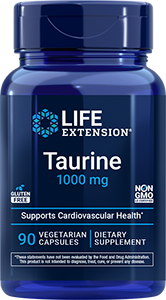
Newsletter
Newsletter
Trial finds krill oil associated with improvement in knee discomfort

Taking krill oil could be a solution to knee discomfort caused by osteoarthritis, according to findings of a recent trial.1
Trial participants who received krill oil had greater improvement in knee discomfort, stiffness and physical function compared to a placebo group. They also experienced an increase in blood omega-3 levels, while levels remained stable among those who received a placebo.
“Krill, Euphausia superba, are small marine crustaceans, reported to be the largest biomass in the world, with an estimated 300,000 million metric tons located in the Antarctic Ocean,” authors Welma Stonehouse and colleagues wrote. “Krill are rich in the long-chain omega-3 polyunsaturated fatty acids EPA and DHA and the antioxidant astaxanthin, which have known anti-inflammatory effects.”
210 middle-aged men and women who had mild to moderate knee osteoarthritis and regularly occurring knee discomfort received 4 grams krill oil or placebo daily for six months. The participants’ knee comfort, stiffness and physical function were self-evaluated and blood samples were analyzed for omega-3 levels and other factors before and after the trial period. The findings were reported on July 26, 2022, in the American Journal of Clinical Nutrition.
“This randomized, controlled trial represents the largest, longest, and highest-dose study to date investigating the effects of krill oil on osteoarthritis knee pain,” the authors announced.
They concluded that the trial provided robust scientific evidence that krill oil “is safe and resulted in modest improvements in knee pain, stiffness and function compared to a placebo.”
Products
Apply What You've Learned: Dementia
- Dementia is a decline in the ability to think, remember and reason. Alzheimer’s disease, dementia with Lewy bodies, vascular dementia and frontotemporal disorders are types of dementia, with Alzheimer’s disease being the most common form of the disorder among older individuals. People can have two or more types of dementia simultaneously.2
- While genetics can predispose individuals to develop dementia, lifestyle also plays a role. Up to one third of dementia cases may be attributable to diabetes, smoking, high blood pressure, being overweight or obese, unhealthy cholesterol levels and/or cardiovascular diseases.3 All of these factors are considered to be modifiable.
- People who eat a Mediterranean diet are less likely to be diagnosed with Alzheimer’s disease (as well as other diseases such as Parkinson’s).4 This diet emphasizes vegetables, whole grains, legumes, nuts, fruits, fish, seafood and unsaturated fats such as olive oil, while limiting intake of red meat, saturated fats and sweets.2
- If you are concerned about your memory or reasoning skills, consult your physician. You may be referred to a specialist who can recommend specific tests that evaluate cognitive function and help your practitioner provide a diagnosis.
References
- Zhao R et al. Front Aging Neurosci. 2022 Aug 1;14:955878.
- “What Is Dementia? Symptoms, Types, and Diagnosis.” National Institutes of Health. National Institute on Aging. 2021 Jul 2. https://www.nia.nih.gov/health/what-is-dementia
- de Bruijn RFAG et al. BMC Med. 2015 Jul 21;13:132.
- Demarin V et al. Acta Clin Croat. 2011 Mar;50(1):67-77.
Featured Life Extension Magazine® Article
Anti-Aging Properties of Carnosine, by Jackson Riley
A recently published review of over 1,000 studies defined carnosine as “a molecule with multimodal mechanisms of action." Carnosine is a compound that helps reduce glycation, which occurs when glucose in the body attaches to proteins, fats or DNA to form damaging advanced glycation end products (AGEs). Not surprisingly, glycation is more common among people with high glucose and is responsible for some of the adverse effects of diabetes. In fact, the hemoglobin A1c test that is used to evaluate long term glucose control in diabetics is a measure of glycation.
Carnosine not only fights glycation, but also helps lower oxidative stress and chronic inflammation: two other underlying causes of chronic disease and premature aging.
Read Full Article
What's Hot
Health Concern
Study finds lithium users had lower dementia risk compared to nonusers
A study reported on March 17, 2002 in PLoS Medicine revealed a significantly lower risk of dementia, including vascular dementia and Alzheimer disease, among men and women who were prescribed lithium, commonly used in the treatment of bipolar disorder.

Arthritis - Osteoarthritis
Natural compounds like krill oil and Boswellia serrata target inflammatory pathways that can contribute to pain, swelling and joint degradation.
Related Life Extension Magazine® Articles

Safely Turn Off Pain Signals
In human trials, a fatty acid produced in the body has been shown to reduce pain from joints, arthritis, sciatica, and migraines.

Krill Oil Optimizes Multimodal Arthritis Control
Conventional medicine’s preferred treatments for arthritis fail to provide safe, long-term relief. One problem is they do not neutralize the many pro-inflammatory molecules that attack aging joints. New data indicate that in combination with hyaluronic acid and astaxanthin, low-dose krill oil specifically targets these joint-damaging molecules. In one clinical trial, over 60% of arthritis sufferers were pain-free in less than three months!
Life Extension Magazine® Issue Now Online
A remarkable number of healthy-longevity findings have been published over the past 18 months.




